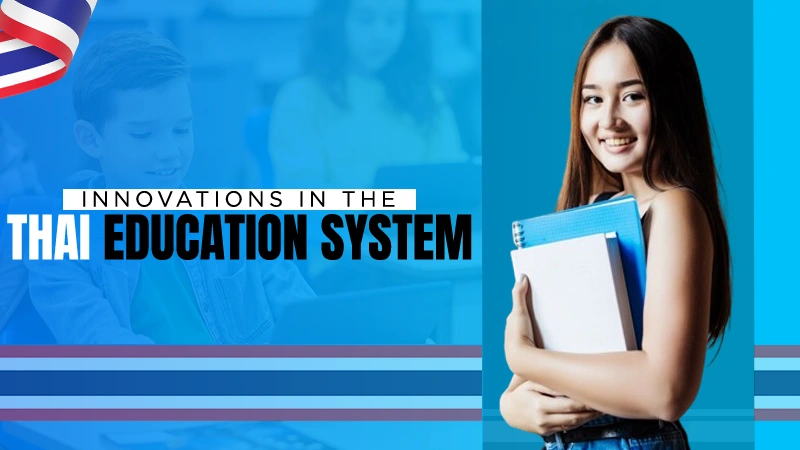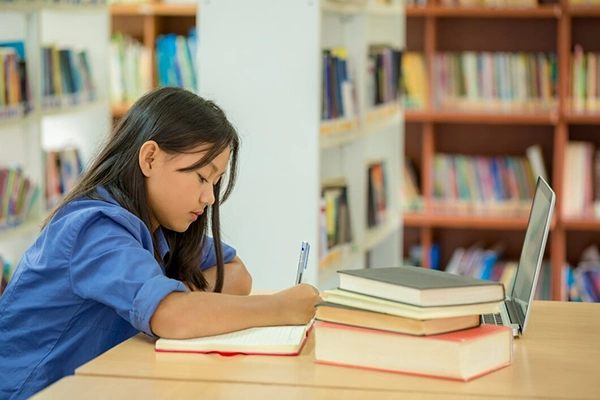
Do you know that countries where the education system was based on the examination are now changing with the integration of globalized learning?
These are mainly the countries where learning is influenced by practices like rote learning.
With the help of Bangkok Prep’s approach to enhancing the Thai education system, the focus of the Thai education system is now on skills like critical thinking, problem-solving, and creativity.
In this article, we will see what are the further changes to make in the Thai education system.

Innovating Education: A Shift in Pedagogy
Thailand’s Ministry of Education realized the need for changes in the education system in 1991 and introduced a student-centric learning model. The ultimate goal of this is to make the learning process more relatable to the students.
Student-centric learning is a teaching method that creates a connection between the interest of the student with the things they learn in school.
Integrating Technology: Stepping into the Digital Era

Ever since the covid hit the entire world, we have witnessed the integration of technology into the education system. The inclusion of smart boards, laptops, and online platforms has bettered the teaching and learning experience.
Now the lessons are studied from the display rather than the traditional notebooks and deliver a personalized learning style education to each individual.
Bridging the Gap: Focusing on Equal Opportunities
In the 1991 reform, the government of Thailand addressed the issue of inequality in society and decided to provide free textbooks, scholarships, and dedicated rural education assistance.
This is done to level up the economically weaker sections of society and to provide the same academic chances to everyone.
Engaging Stakeholders in Education: Partnerships for Development
According to the educational reforms of Thailand, all the stakeholders of education like students, parents, educators, and administrators are included in the collaborative efforts.
These collaborative efforts deliver a supportive environment for educational growth.
Embracing Lifelong Learning: Professional Growth
With the ever-changing nature of global education, Thailand is also making its educators adaptable to the latest trends with continuous professional development. This includes attending seminars, joining professional learning communities, and developing teaching strategies and practices.
This enables teachers to learn new techniques and tools that can be used to uplift the education experience in the classrooms.
Involving Students in Educational Decisions for Empowerment
The educational reforms of Thailand have welcomed the involvement of student councils, forums, and surveys to seek feedback about the education experience.
This involvement creates a sense of responsibility and accountability among the students about the need for education.
Fostering Entrepreneurial Thinking: Inspiring Innovation and Creativity
Understanding the importance and need of entrepreneurs in society in the 21st century, Thailand has started promoting entrepreneurial knowledge in its education system. Teachers encourage students to think broadly, use their creativity, solve problems, and take bold action.
Innovative thinking and creativity not only help students in their education but also leverage them in their professional careers.
Preparing Future Generations: Sustainable Education for Tomorrow
Comprehending the status of the environment and resources in nature, the education system in Thailand is integrating topics like sustainable living, environmental responsibility, and cultural diversity into the curriculum.
The knowledge of all these topics helps students to become responsible citizens of the country.
Final Thoughts
The changes that are being adopted by the education system in Thailand are necessary for relevant education. Sustainable education and creativity in education will assist students to step forward and face the uncertainties in the future. With institutions like Bangkok Prep leading the way, Thailand is well-positioned to build a future-ready generation capable of thriving in an increasingly complex and interconnected world.
FAQs
Ans: The education system in Thailand is of three types, namely preschool, primary, and secondary, and each level is further divided into different stages.
Ans: Innovative education systems target at solving real issues and challenges in the market with knowledge and skills. Some examples of innovation in the education system are the inclusivity of artificial intelligence, mobile learning, gamification, project-based learning, and collaborative learning.
Ans: Absolutely not, the cost of studying in Thailand is comparatively less than in any other country in the world. All the students receive 15 years of education, including 12 years of basic education and 3 years of pre-primary schooling. And over to that, the cost of living and tuition fees is also not high. The overall cost of studying in Thailand will be between 382.48 to 764.95 USD per month.